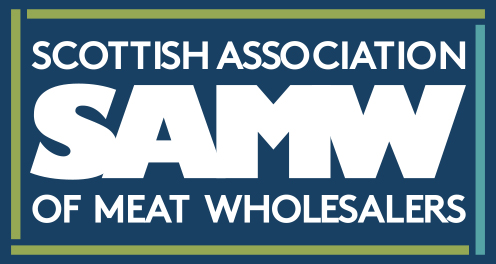Relying on the market to drive livestock production is ‘naive’
It’s naive to continue suggesting that traditional market conditions will deliver sustainable UK food production in the future says the Scottish Association of Meat Wholesalers (SAMW).
This comment is contained in a letter to the Secretary of State for Scotland, Michael Moore, which presents the urgent case for Scottish livestock production to be treated differently from the rest of the UK. Written by SAMW president, Alan McNaughton, the letter stresses the ‘absolutely crucial’ need for the forthcoming reform of the CAP to deliver new support measures for calf production, and possibly lamb production.
It also argues the case for Scottish agriculture to be differentiated from the rest of the UK during the CAP reform process, listing the following seven key points:
“The Less Favoured Area is 85% of Scotland while in England it’s 16% and in Wales it’s 81%,” writes Mr McNaughton.
“Grassland and rough grazing is 79% of the Scottish agricultural area while the UK figure is 61%.
“The Scottish proportion of breeding cows of a beef breed, as opposed to dairy breed, is 72%. In England it’s 40% and in Wales it’s 46%.
“The proportion of calves sired by a beef bull in Scotland is 83%. In England it’s 63% and in Wales it’s 66%.
“The percentage of total agricultural output in Scotland from beef production is 24% and from sheep production is 10%. In the UK 14% is from beef and 6% from sheep.
“The average suckler herd in Scotland is 49 cows and the average ewe flock is 262 ewes. In the UK the average is 27 cows and 215 ewes.
“The average Pillar 1 payment in Scotland is 130 euros per hectare compared with the average in the rest of the UK of 229 euros and an EU average of 268 euros. In each case the Scottish figure is only 48% of that received elsewhere in Europe.”
While acknowledging that coupled payments for Scottish beef calves exist under the Scottish Beef Calf Scheme, Mr McNaughton points out that current payments account for less than 1% of the available UK budget for coupled payments. In addition, attention is drawn to the possibility of taking up the maximum amount available to the UK for coupled schemes.
“We urge you to act in the best interests of Scottish Agriculture,” he tells the Secretary of State. “A major objective of the future CAP must be to halt this downward trend and rejuvenate beef and lamb production.
“To continue to suggest that traditional market conditions will deliver sustainable food production in the vulnerable regions of the UK is naive to say the least. I cannot emphasise enough how important it is to ensure that Scotland’s needs are met in the forthcoming EU negotiations.”
The letter was copied to DEFRA Secretary of State, Owen Paterson, George Lyon MEP, Alyn Smith MEP and Richard Lochhead MSP.
Full text of letter to Michael Moore
